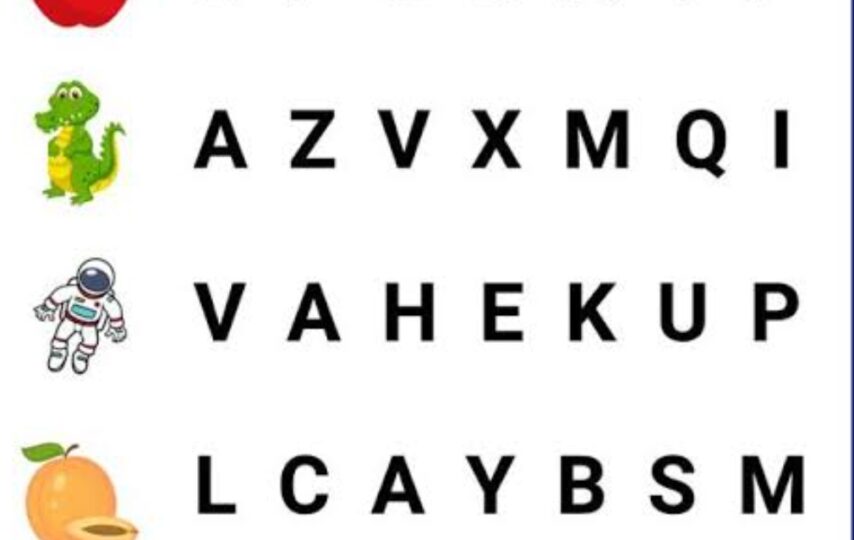In today’s fast-paced world, providing a solid educational foundation for children is crucial. Preschool worksheets foster cognitive, social, and emotional development in young minds.
This article will delve into the importance of preschool worksheets, their benefits, and how they can be utilized effectively to create a stimulating learning environment. Join us as we explore the wonderful world of preschool worksheets and discover their endless possibilities for your child’s growth and success.
Why Preschool Worksheets Matter
Preschool worksheets serve as invaluable tools that facilitate early learning and development. They offer a structured approach to teaching essential skills such as language, math, problem-solving, creativity, and more.
These worksheets are carefully designed to align with the developmental milestones of children aged 3 to 5 years, providing age-appropriate activities that cater to their specific needs.
Children can acquire foundational knowledge and skills that form the building blocks for future academic success by engaging in purposeful play and interactive exercises.
Benefits of Preschool Worksheets
Holistic Development:
Preschool worksheets promote holistic development by targeting various domains of a child’s growth, including cognitive, physical, social, emotional, and language development. Children learn to think critically, express themselves effectively, and develop essential life skills through engaging activities.
Readiness for School:
The transition from preschool to formal schooling can be overwhelming for children. Preschool worksheets bridge this gap by preparing them for the academic challenges they will face in elementary school. By introducing concepts like letters, numbers, shapes, and colors, worksheets lay a solid foundation for smooth progression to higher-level learning.
Individualized Learning:
Every child has unique strengths, weaknesses, and learning styles. Preschool worksheets offer a personalized learning experience, allowing educators and parents to tailor activities to suit each child’s needs. This individualized approach nurtures children’s strengths while providing additional support where necessary, ensuring optimal learning outcomes.
Creativity and Imagination:
Preschool worksheets encourage imaginative thinking and creativity. Children are inspired to explore their creativity and develop problem-solving skills with engaging visuals, interactive exercises, and open-ended activities. These worksheets foster a sense of curiosity and a love for learning, which are essential for lifelong educational success.
Parent-Child Bonding:
Preschool worksheets serve as a bridge between parents and children, providing opportunities for shared learning experiences. When parents actively engage with their child during worksheet activities, they reinforce educational concepts and strengthen the parent-child bond, fostering a positive and supportive home learning environment.
Effective Utilization of Preschool Worksheets
Set Clear Goals:
Identify specific learning objectives and desired outcomes for each worksheet. Whether mastering letter recognition or improving counting skills, setting clear goals helps guide the learning process and ensures that worksheets are utilized effectively.
Create a Structured Routine:
Establish a consistent routine for incorporating worksheets into your child’s daily schedule. Designate a quiet and comfortable learning space where your child can focus and engage with the activities without distractions.
Encourage Active Participation:
Actively involve your child in the worksheet activities. Ask open-ended questions, provide encouragement and praise, and celebrate their achievements. This active participation fosters a positive attitude toward learning and motivates children to explore and discover new concepts.
Balance Worksheets with Hands-On Activities:
While worksheets are valuable learning tools, it’s important to strike a balance by incorporating hands-on activities and real-life experiences. This multisensory approach enhances engagement and deepens understanding by allowing children to apply what they have learned in practical situations.
Provide Feedback and Support:
Regularly review your child’s progress and provide constructive feedback. Celebrate their successes and offer support where they encounter difficulties. Creating a nurturing and supportive learning environment can boost their confidence and help them overcome challenges.
Conclusion
Preschool worksheets are indispensable resources for early childhood education. They offer many benefits, from promoting holistic development to preparing children for the academic journey.
Utilizing these worksheets effectively creates a stimulating learning environment that nurtures your child’s curiosity, creativity, and love for learning. Embrace the power of preschool worksheets and unlock your child’s full potential.








